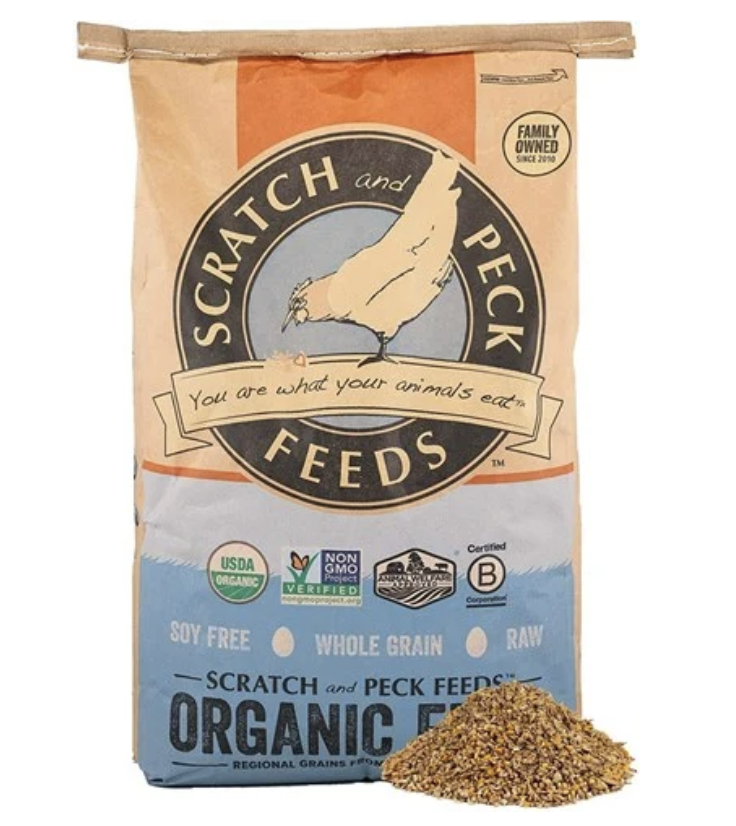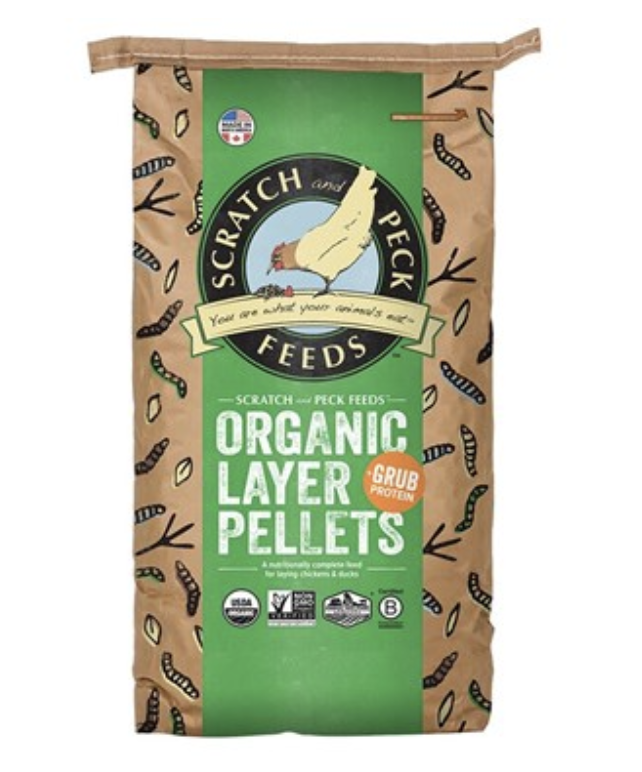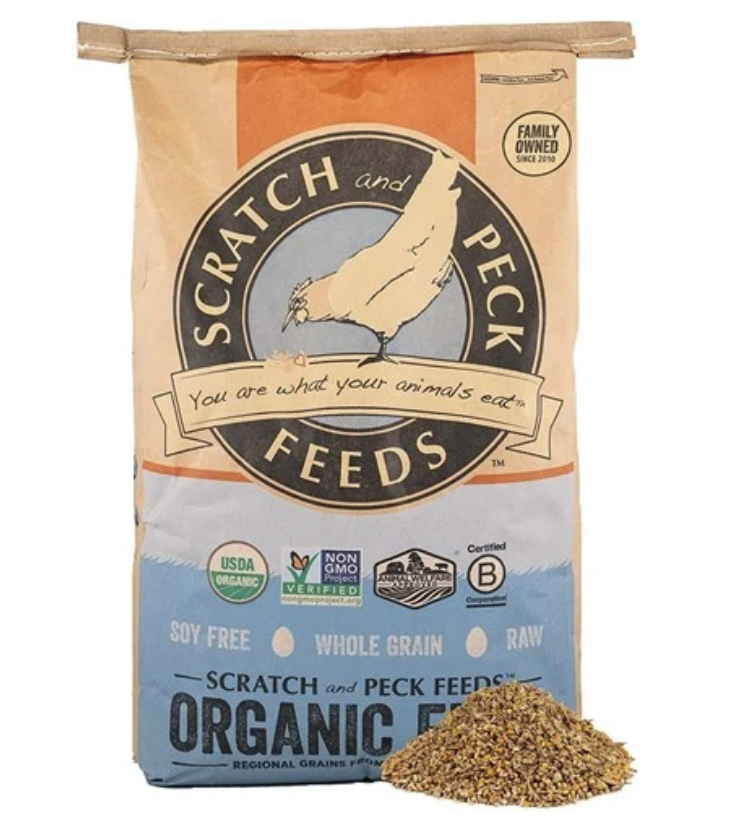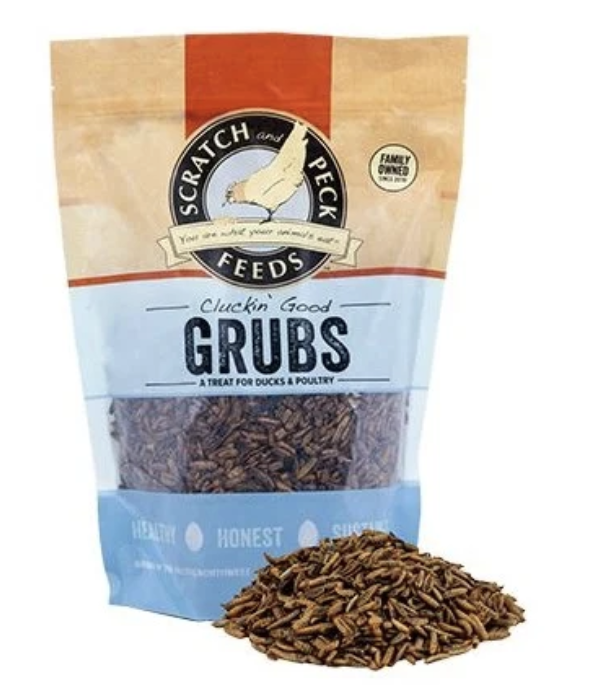Raising Organic Chickens
April 3, 2022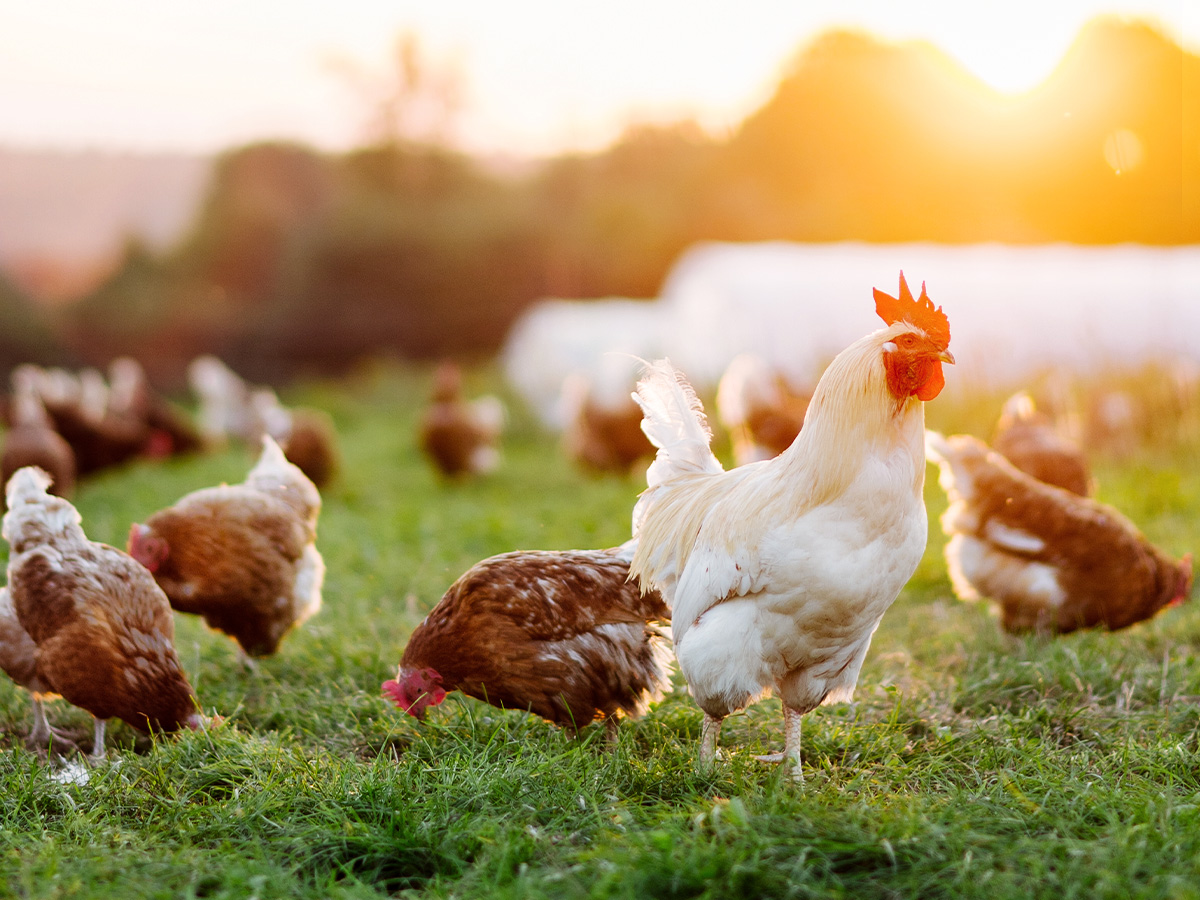
Raising chickens with organic feed can be good and more can be good for the hens as well as your family, whether you're raising them for eggs or meat. We’ve put together some tips to help you raise organic chickens (or simply strive for added organic benefits), along with some feed and starter suggestions from Scratch and Peck Feeds.
What is Organic?
The term organic means a lot of things to different people. For some, it’s simply a way of being a little healthier and kinder to animals. However, to sell something labeled “organic,” the USDA has plenty of rules. You can read those here, including the fact that a chick must be fed and given organic feed, scratch, and treats after the first 48 hours of their live to be labeled as raised organic.
Even if you’re not raising your chickens for the organic label, there are things you can do to keep your hens happier and healthier while raising mostly organic eggs and meat for your family.
As Christine Brenner, Marketing Manager with Scratch and Peck Feeds stated, we eat what our animals eat. “If you’re eating the eggs, you’re eating what your chickens eat. They will benefit from free-range living and organic feed. In return, so will you.”
That organic lifestyle is at the heart of what Scratch and Peck Feeds is all about. They were the first organic chicken feed manufacturer in North America to receive USDA Certified Organic and Non-GMO verification.
“We encompass more than feed,” Brenner added when asked about their company philosophy, which includes doing good for animals and the world we live in. “We are trying to see the bigger picture. If we can make marginal gains every day, it will add up over time.”
Those little things include printing many of their feed bags with vegetable ink. This makes the 25+-lb bags compostable. Plus, the ingredients in every bag are certified organic and Non-GMO to help chickens in every stage of their development, from chicks to pullets and layers.
She and the team at Scratch and Peck Feed are certified “flockstars.” They know chickens can be pecky-eaters, and they do what they can to help you care for your flock. That includes feed and more for chicks (0-8 weeks), pullets (8-20) weeks, and laying hens (20+ weeks).
Give Them Room to Move
Most folks who own chickens let them wander on a bit of land and supply a coop to keep them warm and safe. To be considered organic, a chicken cannot be confined 24/7 (they must be let out daily) and must be given access to pasture in order to forage.
Vaccinations and Antibiotics
Raising healthy chickens often requires antibiotics and vaccinations. Under USDA rules, vaccinations are permitted for the prevention of common illnesses. But antibiotics cannot be used if you want your hens to be considered organically “raised without antibiotics.” There are allowances for the use of sub-therapeutic antibiotics. However, according to the USDA, organic poultry and eggs must come from animals that were given no antibiotics or growth hormones.
Compost the Chicken Poop
Nothing says organic and green like composting. The chicken poop you scoop out of their coop and yard is full of nitrogen, phosphorus, and potassium. That makes it the perfect addition to your composter.
Give Organic a Try
Raising healthy chickens doesn’t have to be expensive or difficult. To give your chickens the vitamins, minerals, and other things they need for strong bones and good eggshell formation, Coastal carries several types of feed, scratch and more from some of the best names in the business.

